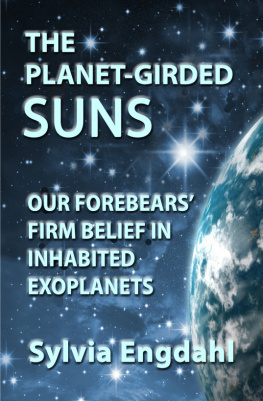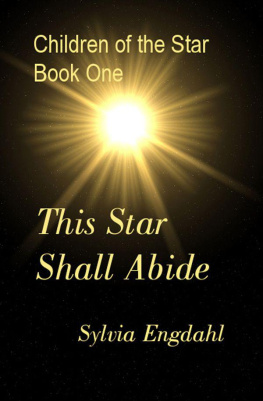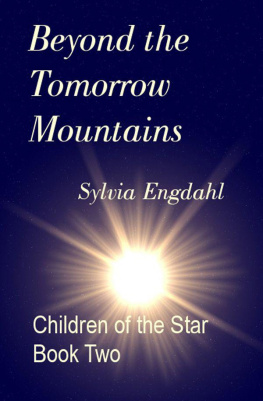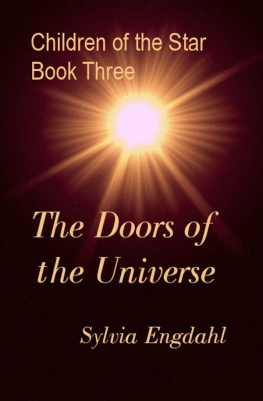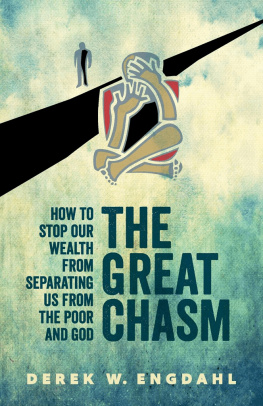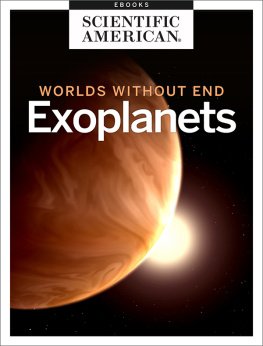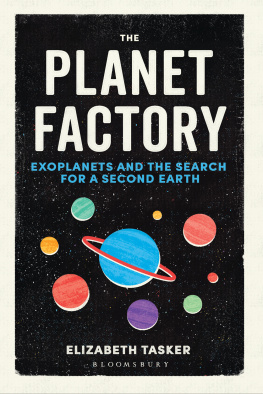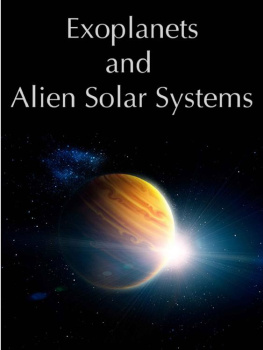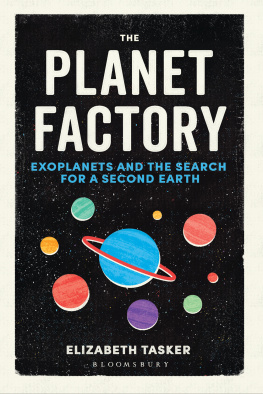Sylvia Engdahl - The Planet-Girded Suns: Our Forebears Firm Belief in Inhabited Exoplanets
Here you can read online Sylvia Engdahl - The Planet-Girded Suns: Our Forebears Firm Belief in Inhabited Exoplanets full text of the book (entire story) in english for free. Download pdf and epub, get meaning, cover and reviews about this ebook. publisher: Ad Stellae Books, genre: Religion. Description of the work, (preface) as well as reviews are available. Best literature library LitArk.com created for fans of good reading and offers a wide selection of genres:
Romance novel
Science fiction
Adventure
Detective
Science
History
Home and family
Prose
Art
Politics
Computer
Non-fiction
Religion
Business
Children
Humor
Choose a favorite category and find really read worthwhile books. Enjoy immersion in the world of imagination, feel the emotions of the characters or learn something new for yourself, make an fascinating discovery.
- Book:The Planet-Girded Suns: Our Forebears Firm Belief in Inhabited Exoplanets
- Author:
- Publisher:Ad Stellae Books
- Genre:
- Rating:3 / 5
- Favourites:Add to favourites
- Your mark:
- 60
- 1
- 2
- 3
- 4
- 5
The Planet-Girded Suns: Our Forebears Firm Belief in Inhabited Exoplanets: summary, description and annotation
We offer to read an annotation, description, summary or preface (depends on what the author of the book "The Planet-Girded Suns: Our Forebears Firm Belief in Inhabited Exoplanets" wrote himself). If you haven't found the necessary information about the book — write in the comments, we will try to find it.
The Planet-Girded Suns: Our Forebears Firm Belief in Inhabited Exoplanets — read online for free the complete book (whole text) full work
Below is the text of the book, divided by pages. System saving the place of the last page read, allows you to conveniently read the book "The Planet-Girded Suns: Our Forebears Firm Belief in Inhabited Exoplanets" online for free, without having to search again every time where you left off. Put a bookmark, and you can go to the page where you finished reading at any time.
Font size:
Interval:
Bookmark:
FROM THE REVIEWS OF
Engdahl has marshalled an impressive andfascinating selection of primary sourcesincluding a roster ofbelievers that includes Newton, Ben Franklin, Walt Whitman, androcket pioneer Robert Goddard.... [She] has shownhow deep this vein of speculation runs... and remindedus that our ancestors entertained a view of the universe that waslarger and more imaginative than the history books lead us tobelieve. Challenging and original. Kirkus Reviews
In a brisk, engrossing account Engdahltraces the theories and speculations concerning the possibility ofextraterrestrial intelligent life throughouthistory.... This [book] is based on originalresearch in primary sources and smoothly incorporates manyquotations from scientists, philosophers, poets and theologians.ALA Booklist
This is an important and interesting book.... The author's thought-provoking presentation on thesubject should provide some fascinating reading. National Space Society
By carefully reconstructing her story fromvoluminous notes on many writers, both well-known and obscure,Engdahl has given vitality and dimension to the idea ofextraterrestrial intelligence. Cosmic Search
The substantial treatment of the history ofthe idea of other solar systems, based largely on research inprimary documents, should make it of use to scholars. Isis OneHundred Second Critical Bibliography of the History of Science andIts Cultural Implications
Engdahl has created a well-crafted,well-researched and unique view on exoplanets, and is a must-readfor those who want a different view on space than the usualtechnical one.
Readers' Favorites
Copyright 1974, 2012 by Sylvia LouiseEngdahl
All rights reserved. For information contactsle@sylviaengdahl.com or visit www.sylviaengdahl.com/adstellae.
Cover image copyright Dmitriy Karelin /123RF
Atheneum hardcover edition published in1974
(Original subtitle: Mans View of Other SolarSystems )
Ad Stellae edition, paperback and ebook,published in 2012
(Subtitle: The History of Human Thought About ExtrasolarWorlds)
Reissued with minor updatingin 2016, subtitled The Long History ofBelief in Exoplanets
Reissued with new preface and presentsubtilte in 2022
Trade paperback, ISBN: 979=8985853278
This ebook edition distributed bySmashwords
Author website: www.sylviaengdahl.com
... The clear galaxy
Shorn of its hoary lustre, wonderful,
Distinct and vivid with sharp points oflight,
Blaze within blaze, an unimagind depth
And harmony of planet-girded suns
And moon-encircled planets, wheel inwheel,
Archd the wan sapphire. Naythe hum ofmen,
Or other things talking in unknowntongues
And notes of busy life in distant worlds
Beat like a far wave on my anxious ear.
Alfred, Lord Tennyson, Timbuctoo,1829
CONTENTS
PREFACETO THE 2022 EDITION
Why Does History Matter?
This book is about history, the history ofan idea that has been far more prevalent during the past fivehundred years than most people realize: the idea that the planetsof distant stars are inhabited. I am not referring to speculationabout visitors to our world, either ancient ones or recentUFOs--both concepts that arose during the twentieth century and arenot accepted by orthodox science. On the contrary, that travelbetween worlds might ever be possible did not even occur to thescientists, clergymen, and other intellectuals of the lateseventeenth through nineteenth centuries who firmly believed thatthe planets of other suns must have inhabitants. Most argued thatGod would not have created a world of no use to anyone, but eventhose who did not put it in religious terms felt that it would beagainst nature for ours alone to be populated.
Serious opposition to that assumption didnot arise until the mid-nineteenth century, and except for a shortperiod in the early twentieth, the belief that there must be manyinhabited worlds prevailed. This is not to say, of course, thatsociety at large was aware of the issue or even that stars might beorbited by planets, since most people had too little education tohave knowledge of astronomy. But the magazines, newspapers, andpoems of the day, directed to the educated minority, made frequentreference to it, as did the writings of such diverse notables asImmanuel Kant, the Puritan minister Cotton Mather, and BenjaminFranklin. It was even included in a few eighteenth-centurytextbooks for children.
Why should we care today what our forebearsbelieved? Now, the question of ET life is a matter forinvestigation by science. There are countless science books thatdeal with the issue. This book, originally published in 1974 andupdated in 2012 and 2016, contains short sections about thescience, but they too are fast falling into the history category.Radio astronomers are attempting to detect signals formextraterrestrial civilizations, and more exoplanets are beingdiscovered every day. If you are looking for current scientificinformation, this is not the place to find it.
What you will find is a perspective on theissue that shows public interest in extraterrestrials is no merepassing fad, a subject assumed (erroneously) to have originated inscience fiction. It is a fundamental aspect of human thought. It'ssignificant, I think, that people of past centuries were convincedthat other inhabited worlds exist, without any scientific evidencewhatsoever. This historical fact reveals that human beings have aninstinctive sense of kinship with the wider universe and a desireto see the realms that lie beyond this one small planetandperhaps, eventually, to go there. Our ancestors conceived of suchvoyages only in a spiritual sense, as occurring after death. But wewho have taken our first small steps into space are aware that ourdescendants may set foot on the worlds of other suns, and those ofus who have faith in such a future believe it to be the destinytoward which humankind has been moving throughout historya stepessential to the long-term survival of humankind. Had this beenknown to the writers of earlier times who spoke of those worldswith longing, they would wonder at the public apathy toward spacetravel that prevails just when we stand on the threshold offulfilling their dream.
And yet, todays apparent apathy may berooted in something much deeper than is commonly supposed. Whileupdating this book for republication, I was struck by a parallel Ihad not seen before between our time and an earlier era, which putsmy worries about our lagging progress in space into a differentlight. And so, as stated in the 2012 Preface, I added an Afterwordto the book, which has since appeared in The Space Review and in myebook From This Green Earth: Essays in Looking Outward. It arguesthat when a new concept of the universe arises, it provokesunconscious anxiety in the public that takes time to fade. Just asin the seventeenth century people were upset by the knowledge thatthe stars are suns scattered in space rather than lights fixed to anearby sphere, the growing awareness that Earth is not safelyisolated from whatever lies beyond makes many of our contemporariesuneasy. Thus the predominant feelings about spaceships areambivalent. Nevertheless, if an impulse toward belief that we arenot alone in the universe is indeed an innate characteristic ofhuman beings, as our history suggests, we can be sure that thosewho follow us will not turn back from becoming spacefarers.
Sylvia Engdahl, March 2022
PREFACE TO THE 2012 AND 2016 EDITIONS
This book was first published by Atheneum in1974. The original text contains three parts: The Vision of thePast, The Knowledge of the Present, and The Questions of theFuture. The first part is the longest, with six chapters ascompared to two in each of the others, and is the one still ofgreatest significance. It covers the history of beliefs aboutplanets of other suns, including a lot of information thats notreadily available to the general public elsewhere.
Next pageFont size:
Interval:
Bookmark:
Similar books «The Planet-Girded Suns: Our Forebears Firm Belief in Inhabited Exoplanets»
Look at similar books to The Planet-Girded Suns: Our Forebears Firm Belief in Inhabited Exoplanets. We have selected literature similar in name and meaning in the hope of providing readers with more options to find new, interesting, not yet read works.
Discussion, reviews of the book The Planet-Girded Suns: Our Forebears Firm Belief in Inhabited Exoplanets and just readers' own opinions. Leave your comments, write what you think about the work, its meaning or the main characters. Specify what exactly you liked and what you didn't like, and why you think so.

